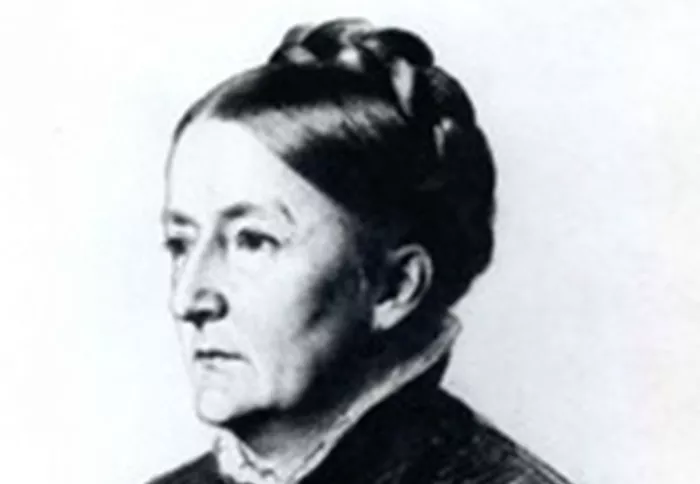Sophie Hasenclever, a distinguished 19th-century German poet and translator, made significant contributions to German poetry and literature through her original works and translations. Her life and career offer a compelling narrative of artistic dedication, intellectual rigor, and cultural engagement within the vibrant literary milieu of 19th-century Germany.
Sophie Hasenclever
Born on January 6, 1823, in Berlin as Sophie von Schadow, she was the only daughter of Wilhelm von Schadow, a prominent painter and professor at the Prussian Academy of Arts, and his wife Charlotte von Groschke. In 1826, her father became the director of the Kunstakademie Düsseldorf, prompting the family’s relocation to Düsseldorf. Growing up in an environment steeped in artistic and intellectual pursuits, Sophie was exposed to a circle of influential artists, writers, and musicians who frequented her family’s home. Notably, composer Felix Mendelssohn Bartholdy was among the regular visitors. Her father provided her with painting lessons, nurturing her artistic sensibilities from a young age.
Sophie’s education extended beyond the visual arts. Accompanying her parents on trips to Italy at ages six and sixteen, she immersed herself in Italian culture and language, achieving fluency that would later inform her translation work. These formative experiences cultivated a deep appreciation for European art and literature, laying the groundwork for her future endeavors as a German poet and translator.
Marriage and Family Life
In 1845, Sophie married Dr. Richard Hasenclever, a physician who later became a Sanitätsrat (medical officer). The couple initially resided in Grevenbroich, where Richard served as Kreisarzt (district physician), before settling in Düsseldorf. They had two children: Anna, born in 1846, and Felix, born in 1851. During the early years of her marriage and motherhood, Sophie prioritized her family responsibilities, aligning with societal expectations of women during that period. Despite this focus, she continued to engage in literary pursuits privately, honing her skills as a poet and translator.
Literary Salon and Cultural Engagement
The Hasenclever residence in Düsseldorf became a hub of cultural activity, hosting a salon that attracted prominent figures from various artistic disciplines. Esteemed guests included poets Karl Immermann and Gottfried Keller, as well as composers Ferdinand Hiller and Robert and Clara Schumann. These gatherings facilitated rich exchanges of ideas and fostered collaborations, situating Sophie within a dynamic network of creatives who shaped 19th-century German cultural life.
Literary Contributions and Themes
Sophie Hasenclever’s oeuvre encompasses a diverse range of genres, including poetry, novellas, fairy tales, comedies, and satires. Her works often explore themes of human resilience in the face of crisis, critiques of societal and industrial developments, and contemplations on nature, love, loneliness, and mortality.
In 1877, she published Aus der Kriegszeit 1870–71, a collection of novellas reflecting on the experiences and aftermath of the Franco-Prussian War. This was followed by Rheinische Lieder in 1881, a poetry collection that garnered critical acclaim and secured her a lasting place in German literature. Literary historian Heinrich Groß praised this work for its contribution to German poetry.
Her Novellen und Märchen, a two-volume edition published in 1884 and dedicated to Swiss writer Gottfried Keller, delves into narratives where characters confront and navigate personal crises. These stories underscore her interest in the human condition and the complexities of individual experience.
Translation Work and Scholarly Engagement
Hasenclever’s proficiency in Italian and French enabled her to undertake significant translation projects, bridging cultural and linguistic divides. In 1874, she translated the poems of Breton poet Auguste Brizeux, providing German readers access to his works. Her dedication to translation is exemplified by her decade-long effort to render Michelangelo’s complete poetic oeuvre into German, culminating in the 1875 publication of Sämmtliche Gedichte Michelangelo’s. This work, introduced by art historian M. Jordan, remains a respected translation.
In 1890, she translated Dante Alighieri‘s Divine Comedy, further demonstrating her commitment to making seminal Italian literature accessible to the German-speaking audience. Her translations are noted for their fidelity to the original texts and their poetic quality, reflecting her deep understanding of both source and target languages.
Contemporary German Poets
Within the landscape of 19th-century German poetry, Sophie Hasenclever’s contributions stand alongside those of her contemporaries, each addressing the social and cultural currents of the time. Poets such as Annette von Droste-Hülshoff and Luise Büchner also navigated themes of personal and societal conflict, offering nuanced perspectives on the human experience. While Droste-Hülshoff is renowned for her introspective and nature-infused poetry, and Büchner for her advocacy of women’s rights through literature, Hasenclever distinguished herself through the integration of translation and original composition, enriching German poetry with international influences.
Conclusion
Sophie Hasenclever passed away on May 10, 1892, in Düsseldorf, leaving behind a substantial body of work that reflects her literary talent and cultural engagement. Her grave is located at the Golzheimer Friedhof. Through her original writings and translations, she contributed significantly to 19th-century German poetry and literature, fostering cross-cultural understanding and enriching the German literary canon. Her life and work continue to be recognized for their impact on German poetry and the broader cultural landscape of her time.

